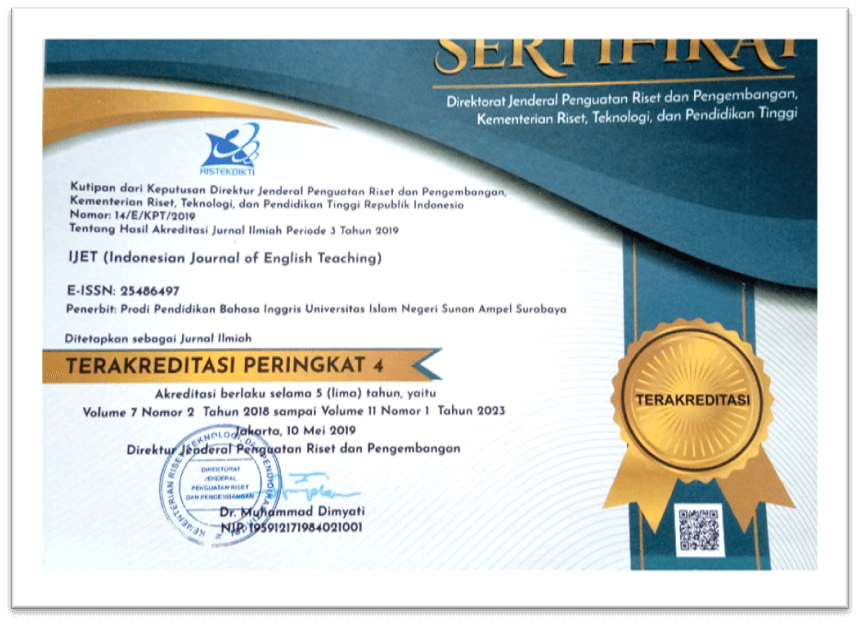Exploring the Use of Flipped Classroom in Influencing Listening Comprehension of Civil Engineering Students
DOI:
https://doi.org/10.15642/ijet2.2023.12.1.48-56Keywords:
Civil engineering; ESP; flipped classroom; listeningAbstract
Nowadays, maintaining students’ listening ability, particularly during this COVID-19 pandemic is difficult to do. One of the influential aspects in learning English which is also affected by learning patterns in today's pandemic era is listening comprehension. This study elaborates the influence of using flipped classroom to the learning motivation of civil engineering students of Politeknik Negeri Ambon. This study aims at finding out whether or not the use of flipped classroom influences students’ listening comprehension in learning English. The study applied quasi experimental design. The population of the study took two classes of the first semester of TKJJ Study Program in Civil Engineering Department of Politeknik Negeri Ambon as sample through cluster random sampling. One class act as experimental group and other class act as control group. Experimental group taught by implementing flipped classroom while control group taught by using traditional method. The teaching materials used in this study refers to English for Specific Purposes (ESP) namely English for Civil Engineering. The results of the study revealed that the use of flipped classroom encourage students’ listening comprehension as shown from data that t-test value (4.3) was higher than t-table value (2.000). It means that flipped classroom has influenced and improved students’ listening comprehension in classroom.
Keywords: civil engineering, ESP, flipped classroom, listening
Downloads
References
(APA 7th)
Bergmann, J., & Sams, A. (2012). Flip your classroom: Reach every student in every class every day. International society for technology in education.
Hamciuc, M., & Roux, P. (2014). How flipped classrooms can benefit the development of autonomous learning. The Kyushu Academic Society of English Language Education (KASELE), 42, 1-11.
Jakob, J. C. (2018). The use of digital storytelling in teaching listening comprehension: An experimental study on the eighth grade students of SMP Negeri 4 Parepare. ELT Worldwide, 5(1).
Mas' ud, H., & Surjono, H. D. (2018). The implementation of flipped classroom learning model using moodle to increase students’ higher order thinking skills. Journal of Educational Science and Technology (EST), 1(1), 187-194.
Nurul Fildzah, Z., Ilham, M., & Rusli, R. (2017). Pengaruh Strategi Pembelajaran Flipped Classroom Menggunakan e-Learning Kelase Terhadap Hasil Belajar Matematika Siswa. Issues in Mathematics Education (IMED), 1(2)
Olakanmi, E. E. (2017). The effects of a flipped classroom model of instruction on students’ performance and attitudes towards chemistry. Journal of Science Education and Technology, 26(1), 127-137.
Prasetya, S. P. (2013). Pengaruh E-Learning dan Motivasi Belajar terhadap Hasil Belajar Mahasiswa. Jurusan Pendidikan Geografi FIS.
Wulandari, H. (2017). Optimalisasi E-learning dengan Menggunakan Metode Flipped Classroom.










